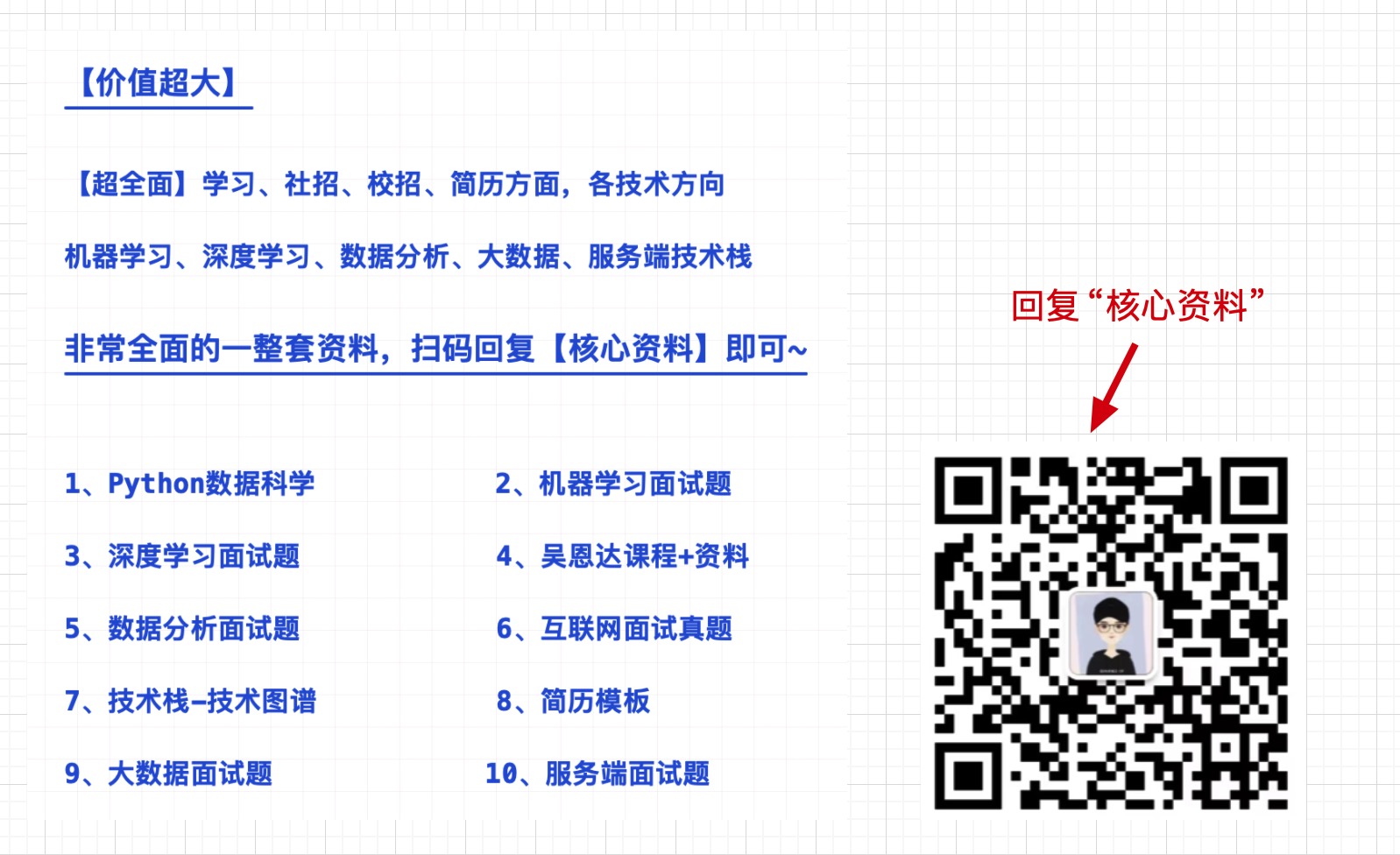一、前言
Spark对Hive的所有操作都是通过获取Hive元数据[metastore]帮助spark构建表信息从而调用HDFS-API对原始数据的操作,可以说Spark兼容多版本Hive就是在兼容Hive的Metastore
二、源码分析
在catalog一节中我们知道spark对hive操作是通过HiveExternalCatalog,而HiveExternalCatalog对hive的DDL、DML操作都是使用内部的HiveClient变量,如下:


接下来我们看HiveUtils.newClientForMetadata函数:
protected[hive] def newClientForMetadata(
conf: SparkConf,
hadoopConf: Configuration): HiveClient = {
val configurations = formatTimeVarsForHiveClient(hadoopConf)
newClientForMetadata(conf, hadoopConf, configurations)
}
在newClientForMetadata函数中spark为我们提供了三种方式来构建HiveClient:
1、使用spark内置的hiveMetaStore相关包构建HiveClient
2、使用用户指定的hiveMetaStore相关包和version版本构建HiveClient
3、使用用户指定的hive版本去Maven仓库上下载hiveMetaStore相关包从而构建HiveClient
这里简化了部分源码,简化的部分后面会一一展开
protected[hive] def newClientForMetadata(
conf: SparkConf,
hadoopConf: Configuration,
configurations: Map[String, String]): HiveClient = {
val sqlConf = new SQLConf
sqlConf.setConf(SQLContext.getSQLProperties(conf))
val hiveMetastoreVersion = HiveUtils.hiveMetastoreVersion(sqlConf)
val hiveMetastoreJars = HiveUtils.hiveMetastoreJars(sqlConf)
val hiveMetastoreSharedPrefixes = HiveUtils.hiveMetastoreSharedPrefixes(sqlConf)
val hiveMetastoreBarrierPrefixes = HiveUtils.hiveMetastoreBarrierPrefixes(sqlConf)
val metaVersion = IsolatedClientLoader.hiveVersion(hiveMetastoreVersion)
val isolatedLoader = if (hiveMetastoreJars == "builtin") {
......
} else if (hiveMetastoreJars == "maven") {
......
} else {
......
}
isolatedLoader.createClient()
}
先来看看hiveMetastoreVersion版本如何指定:
val hiveMetastoreVersion = HiveUtils.hiveMetastoreVersion(sqlConf)
private def hiveMetastoreVersion(conf: SQLConf): String = {
conf.getConf(HIVE_METASTORE_VERSION)
}
val HIVE_METASTORE_VERSION = buildStaticConf("spark.sql.hive.metastore.version")
.doc("Version of the Hive metastore. Available options are " +
"0.12.0 through 2.3.7 and " +
"3.0.0 through 3.1.2.")
.version("1.4.0")
.stringConf
.createWithDefault(builtinHiveVersion)
val builtinHiveVersion: String = if (isHive23) hiveVersion else "1.2.1"

再看hiveMetaStore相关jar包地址如何指定:
val hiveMetastoreJars = HiveUtils.hiveMetastoreJars(sqlConf)
private def hiveMetastoreJars(conf: SQLConf): String = {
conf.getConf(HIVE_METASTORE_JARS)
}
val HIVE_METASTORE_JARS = buildStaticConf("spark.sql.hive.metastore.jars")
.doc(s"""
| Location of the jars that should be used to instantiate the HiveMetastoreClient.
| This property can be one of three options: "
| 1. "builtin"
| Use Hive ${builtinHiveVersion}, which is bundled with the Spark assembly when
| -Phive is enabled. When this option is chosen,
| spark.sql.hive.metastore.version must be either
| ${builtinHiveVersion}
or not defined.
| 2. "maven"
| Use Hive jars of specified version downloaded from Maven repositories.
| 3. A classpath in the standard format for both Hive and Hadoop.
""".stripMargin )
.version ("1.4.0")
.stringConf
.createWithDefault ("builtin")

接下来展开前面省略代码部分是如何构建HiveClient:
protected[hive] def newClientForMetadata(
conf: SparkConf,
hadoopConf: Configuration,
configurations: Map[String, String]): HiveClient = {
val sqlConf = new SQLConf
sqlConf.setConf(SQLContext.getSQLProperties(conf))
val hiveMetastoreVersion = HiveUtils.hiveMetastoreVersion(sqlConf)
val hiveMetastoreJars = HiveUtils.hiveMetastoreJars(sqlConf)
val hiveMetastoreSharedPrefixes = HiveUtils.hiveMetastoreSharedPrefixes(sqlConf)
val hiveMetastoreBarrierPrefixes = HiveUtils.hiveMetastoreBarrierPrefixes(sqlConf)
val metaVersion = IsolatedClientLoader.hiveVersion(hiveMetastoreVersion)
val isolatedLoader = if (hiveMetastoreJars == "builtin") {
if (builtinHiveVersion != hiveMetastoreVersion) {
throw new IllegalArgumentException(
"Builtin jars can only be used when hive execution version == hive metastore version. " +
s"Execution: $builtinHiveVersion != Metastore: $hiveMetastoreVersion. " +
s"Specify a valid path to the correct hive jars using ${HIVE_METASTORE_JARS.key} " +
s"or change ${HIVE_METASTORE_VERSION.key} to $builtinHiveVersion.")
}
def allJars(classLoader: ClassLoader): Array[URL] = classLoader match {
case null => Array.empty[URL]
case childFirst: ChildFirstURLClassLoader =>
childFirst.getURLs() ++ allJars(Utils.getSparkClassLoader)
case urlClassLoader: URLClassLoader =>
urlClassLoader.getURLs ++ allJars(urlClassLoader.getParent)
case other => allJars(other.getParent)
}
val classLoader = Utils.getContextOrSparkClassLoader
val jars: Array[URL] = if (SystemUtils.isJavaVersionAtLeast(JavaVersion.JAVA_9)) {
......
} else {
val loadedJars = allJars(classLoader)
if (loadedJars.length == 0) {
throw new IllegalArgumentException(
"Unable to locate hive jars to connect to metastore. " +
s"Please set ${HIVE_METASTORE_JARS.key}.")
}
loadedJars
}
logInfo(
s"Initializing HiveMetastoreConnection version $hiveMetastoreVersion using Spark classes.")
new IsolatedClientLoader(
version = metaVersion,
sparkConf = conf,
hadoopConf = hadoopConf,
execJars = jars.toSeq,
config = configurations,
isolationOn = !isCliSessionState(),
barrierPrefixes = hiveMetastoreBarrierPrefixes,
sharedPrefixes = hiveMetastoreSharedPrefixes)
} else if (hiveMetastoreJars == "maven") {
logInfo(
s"Initializing HiveMetastoreConnection version $hiveMetastoreVersion using maven.")
IsolatedClientLoader.forVersion(
hiveMetastoreVersion = hiveMetastoreVersion,
hadoopVersion = VersionInfo.getVersion,
sparkConf = conf,
hadoopConf = hadoopConf,
config = configurations,
barrierPrefixes = hiveMetastoreBarrierPrefixes,
sharedPrefixes = hiveMetastoreSharedPrefixes)
} else {
val jars =
hiveMetastoreJars
.split(File.pathSeparator)
.flatMap {
case path if new File(path).getName == "*" =>
val files = new File(path).getParentFile.listFiles()
if (files == null) {
logWarning(s"Hive jar path '$path' does not exist.")
Nil
} else {
files.filter(_.getName.toLowerCase(Locale.ROOT).endsWith(".jar"))
}
case path =>
new File(path) :: Nil
}
.map(_.toURI.toURL)
logInfo(
s"Initializing HiveMetastoreConnection version $hiveMetastoreVersion " +
s"using ${jars.mkString(":")}")
new IsolatedClientLoader(
version = metaVersion,
sparkConf = conf,
hadoopConf = hadoopConf,
execJars = jars.toSeq,
config = configurations,
isolationOn = true,
barrierPrefixes = hiveMetastoreBarrierPrefixes,
sharedPrefixes = hiveMetastoreSharedPrefixes)
}
isolatedLoader.createClient()
}
先来看一下maven模式下forVersion函数的逻辑:
def forVersion(
hiveMetastoreVersion: String,
hadoopVersion: String,
sparkConf: SparkConf,
hadoopConf: Configuration,
config: Map[String, String] = Map.empty,
ivyPath: Option[String] = None,
sharedPrefixes: Seq[String] = Seq.empty,
barrierPrefixes: Seq[String] = Seq.empty,
sharesHadoopClasses: Boolean = true): IsolatedClientLoader = synchronized {
val resolvedVersion = hiveVersion(hiveMetastoreVersion)
var _sharesHadoopClasses = sharesHadoopClasses
val files = if (resolvedVersions.contains((resolvedVersion, hadoopVersion))) {
resolvedVersions((resolvedVersion, hadoopVersion))
} else {
val remoteRepos = sparkConf.get(SQLConf.ADDITIONAL_REMOTE_REPOSITORIES)
val (downloadedFiles, actualHadoopVersion) =
try {
(downloadVersion(resolvedVersion, hadoopVersion, ivyPath, remoteRepos), hadoopVersion)
} catch {
case e: RuntimeException if e.getMessage.contains("hadoop") =>
val fallbackVersion = "2.7.4"
logWarning(s"Failed to resolve Hadoop artifacts for the version $hadoopVersion. We " +
s"will change the hadoop version from $hadoopVersion to $fallbackVersion and try " +
"again. Hadoop classes will not be shared between Spark and Hive metastore client. " +
"It is recommended to set jars used by Hive metastore client through " +
"spark.sql.hive.metastore.jars in the production environment.")
_sharesHadoopClasses = false
(downloadVersion(
resolvedVersion, fallbackVersion, ivyPath, remoteRepos), fallbackVersion)
}
resolvedVersions.put((resolvedVersion, actualHadoopVersion), downloadedFiles)
resolvedVersions((resolvedVersion, actualHadoopVersion))
}
new IsolatedClientLoader(
hiveVersion(hiveMetastoreVersion),
sparkConf,
execJars = files,
hadoopConf = hadoopConf,
config = config,
sharesHadoopClasses = _sharesHadoopClasses,
sharedPrefixes = sharedPrefixes,
barrierPrefixes = barrierPrefixes)
}
def hiveVersion(version: String): HiveVersion = version match {
case "12" | "0.12" | "0.12.0" => hive.v12
case "13" | "0.13" | "0.13.0" | "0.13.1" => hive.v13
case "14" | "0.14" | "0.14.0" => hive.v14
case "1.0" | "1.0.0" | "1.0.1" => hive.v1_0
case "1.1" | "1.1.0" | "1.1.1" => hive.v1_1
case "1.2" | "1.2.0" | "1.2.1" | "1.2.2" => hive.v1_2
case "2.0" | "2.0.0" | "2.0.1" => hive.v2_0
case "2.1" | "2.1.0" | "2.1.1" => hive.v2_1
case "2.2" | "2.2.0" => hive.v2_2
case "2.3" | "2.3.0" | "2.3.1" | "2.3.2" | "2.3.3" | "2.3.4" | "2.3.5" | "2.3.6" | "2.3.7" =>
hive.v2_3
case "3.0" | "3.0.0" => hive.v3_0
case "3.1" | "3.1.0" | "3.1.1" | "3.1.2" => hive.v3_1
case version =>
throw new UnsupportedOperationException(s"Unsupported Hive Metastore version ($version). " +
s"Please set ${HiveUtils.HIVE_METASTORE_VERSION.key} with a valid version.")
}
val ADDITIONAL_REMOTE_REPOSITORIES =
buildConf("spark.sql.maven.additionalRemoteRepositories")
.doc("A comma-delimited string config of the optional additional remote Maven mirror " +
"repositories. This is only used for downloading Hive jars in IsolatedClientLoader " +
"if the default Maven Central repo is unreachable.")
.version("3.0.0")
.stringConf
.createWithDefault(
"https://maven-central.storage-download.googleapis.com/maven2/")
private def downloadVersion(
version: HiveVersion,
hadoopVersion: String,
ivyPath: Option[String],
remoteRepos: String): Seq[URL] = {
val hiveArtifacts = version.extraDeps ++
Seq("hive-metastore", "hive-exec", "hive-common", "hive-serde")
.map(a => s"org.apache.hive:$a:${version.fullVersion}") ++
Seq("com.google.guava:guava:14.0.1",
s"org.apache.hadoop:hadoop-client:$hadoopVersion")
val classpath = quietly {
SparkSubmitUtils.resolveMavenCoordinates(
hiveArtifacts.mkString(","),
SparkSubmitUtils.buildIvySettings(
Some(remoteRepos),
ivyPath),
exclusions = version.exclusions)
}
val allFiles = classpath.split(",").map(new File(_)).toSet
val tempDir = Utils.createTempDir(namePrefix = s"hive-${version}")
allFiles.foreach(f => FileUtils.copyFileToDirectory(f, tempDir))
logInfo(s"Downloaded metastore jars to ${tempDir.getCanonicalPath}")
tempDir.listFiles().map(_.toURI.toURL)
}

至此可以看出spark兼容hiveMetaStore所提供的三种模式都是先构建一个IsolatedClientLoader类,IsolatedClientLoader类是用来构造HiveClient背后具体的不同的Hive版本的工厂类,每一个IsolatedClientLoader对象,都封装了某个版本的HiveClient的实现,包括:版本号,对应版本的相关jars。
在IsolatedClientLoader类中有一个classLoader变量,该变量通过创建类加载器来实现不同hive版本的隔离!因为在一个JVM中一个类加载器不能存在两个一模一样的类,如果想实现此功能则需要创建新的classLoader,所以这里spark才会将jars路径传递进去;
关于classLoader相关知识不作为本节重点,感兴趣的小伙伴可以看这篇文章:老大难的 Java ClassLoader 再不理解就老了
接下来看一下IsolatedClientLoader的classLoader属性:
private[hive] val classLoader: MutableURLClassLoader = {
val isolatedClassLoader =
if (isolationOn) {
if (allJars.isEmpty) {
baseClassLoader
} else {
val rootClassLoader: ClassLoader = ......
new URLClassLoader(allJars, rootClassLoader) {
override def loadClass(name: String, resolve: Boolean): Class[_] = {
val loaded = findLoadedClass(name)
if (loaded == null) doLoadClass(name, resolve) else loaded
}
def doLoadClass(name: String, resolve: Boolean): Class[_] = {
......
}
}
}
} else {
baseClassLoader
}
new NonClosableMutableURLClassLoader(isolatedClassLoader)
}
public class NonClosableMutableURLClassLoader extends MutableURLClassLoader {
static {
ClassLoader.registerAsParallelCapable();
}
public NonClosableMutableURLClassLoader(ClassLoader parent) {
super(new URL[]{}, parent);
}
@Override
public void close() {}
}
public class MutableURLClassLoader extends URLClassLoader {
......
}
可以看到spark通过提供自定义的独立的ClassLoader, 用来支持在同一个jvm 中同时使用多个不同版本的HiveMetastore,这是由于Spark本身默认绑定的built-in的hive 版本是1.2.1,因此,如果我们需要使用其他高版本的HiveClient,就有可能存在同一个Spark JVM里面并存多个不同版本的hive client,这需要使用不同的ClassLoader对象来实现, 每一个IsolatedClientLoader负责一个hive version.
接下来看一下IsolatedClientLoader的createClient函数:
private[hive] def createClient(): HiveClient = synchronized {
val warehouseDir = Option(hadoopConf.get(ConfVars.METASTOREWAREHOUSE.varname))
if (!isolationOn) {
return new HiveClientImpl(version, warehouseDir, sparkConf, hadoopConf, config,
baseClassLoader, this)
}
logDebug("Initializing the logger to avoid disaster...")
val origLoader = Thread.currentThread().getContextClassLoader
Thread.currentThread.setContextClassLoader(classLoader)
try {
classLoader
.loadClass(classOf[HiveClientImpl].getName)
.getConstructors.head
.newInstance(version, warehouseDir, sparkConf, hadoopConf, config, classLoader, this)
.asInstanceOf[HiveClient]
} catch {
case e: InvocationTargetException =>
if (e.getCause().isInstanceOf[NoClassDefFoundError]) {
val cnf = e.getCause().asInstanceOf[NoClassDefFoundError]
throw new ClassNotFoundException(
s"$cnf when creating Hive client using classpath: ${execJars.mkString(", ")}\n" +
"Please make sure that jars for your version of hive and hadoop are included in the " +
s"paths passed to ${HiveUtils.HIVE_METASTORE_JARS.key}.", e)
} else {
throw e
}
} finally {
Thread.currentThread.setContextClassLoader(origLoader)
}
}
接下来我们看一下HiveClientImpl类的实现,首先HiveClientImpl类是HiveClient的子类,HiveClient对外提供了诸多接口供spark使用

HiveClientImpl有一个非常重要的变量shim寓意垫子,也是各个hive版本API兼容的关键,shim会根据version来创建不同hive版本的shim

先来了解一下shim的继承关系:shim接口对外提供的接口是hive各个版本之间api冲突的接口,这里说的冲突是指api冲突,即hive不同版本中相同函数但定义不同的冲突,下面会详细讲解
shim接口是从 Shim_v0_12 开始实现接口,所有子类以塔型结构继承,高版本hive遇到api冲突重新实现接口即可,不冲突的api也可以直接复用低版本的api

我们举一个hive-api冲突的例子,就拿loadPartition函数为例,在hive-0.12版本和hive-2.0版本该函数的参数个数不同
public void loadPartition(Path loadPath, String tableName,
Map<String, String> partSpec, boolean replace, boolean holdDDLTime,
boolean inheritTableSpecs, boolean isSkewedStoreAsSubdir)
throws HiveException {
......
}
public void loadPartition(Path loadPath, String tableName,
Map<String, String> partSpec, boolean replace, boolean inheritTableSpecs,
boolean isSkewedStoreAsSubdir, boolean isSrcLocal,
boolean isAcid) throws HiveException {
Table tbl = getTable(tableName);
loadPartition(loadPath, tbl, partSpec, replace, inheritTableSpecs,
isSkewedStoreAsSubdir, isSrcLocal, isAcid);
}
可以看出在两个不同版本的hive中loadPartition函数定义发生变化,那么shim是如何兼容的呢?
首先在shim顶级接口中定义了loadPartition函数所需的核心参数,至于不同版本hive的loadPartition实现则是通过反射来实现!
Shim_v0_12:
override def loadPartition(
hive: Hive,
loadPath: Path,
tableName: String,
partSpec: JMap[String, String],
replace: Boolean,
inheritTableSpecs: Boolean,
isSkewedStoreAsSubdir: Boolean,
isSrcLocal: Boolean): Unit = {
loadPartitionMethod.invoke(hive, loadPath, tableName, partSpec, replace: JBoolean,
JBoolean.FALSE, inheritTableSpecs: JBoolean, isSkewedStoreAsSubdir: JBoolean)
}
private lazy val loadPartitionMethod =
findMethod(
classOf[Hive],
"loadPartition",
classOf[Path],
classOf[String],
classOf[JMap[String, String]],
JBoolean.TYPE,
JBoolean.TYPE,
JBoolean.TYPE,
JBoolean.TYPE)
Shim_v2_0:
override def loadPartition(
hive: Hive,
loadPath: Path,
tableName: String,
partSpec: JMap[String, String],
replace: Boolean,
inheritTableSpecs: Boolean,
isSkewedStoreAsSubdir: Boolean,
isSrcLocal: Boolean): Unit = {
loadPartitionMethod.invoke(hive, loadPath, tableName, partSpec, replace: JBoolean,
inheritTableSpecs: JBoolean, isSkewedStoreAsSubdir: JBoolean,
isSrcLocal: JBoolean, isAcid)
}
private lazy val loadPartitionMethod =
findMethod(
classOf[Hive],
"loadPartition",
classOf[Path],
classOf[String],
classOf[JMap[String, String]],
JBoolean.TYPE,
JBoolean.TYPE,
JBoolean.TYPE,
JBoolean.TYPE,
JBoolean.TYPE)
再看HiveClientImpl是怎么使用loadPartition函数:是调用了shim变量,而shim变量又会根据version创建不同版本的shim, 最终会调用不同版本shim中的loadPartition函数,进而调用loadPartitionMethod.invoke进行反射

这里有一个隐藏知识点,既然是反射调用就需要在invoke时传递调用该函数的实体类,也就是上图中shim.loadPartition函数中第一个参数client,如下:

将HiveClientImpl类中的client参数传递给shim的loadPartition函数,loadPartitionMethod.invoke随后反射调用

看一下HiveClientImpl类中的client是什么:

private def client: Hive = {
if (clientLoader.cachedHive != null) {
clientLoader.cachedHive.asInstanceOf[Hive]
} else {
val c = Hive.get(conf)
clientLoader.cachedHive = c
c
}
}
那么这里就会产生一个疑惑,当外部spark程序第一次调用client函数时的类加载是谁?我们先回到HiveExternalCatalog构建HiveClient阶段:在这个阶段中已经构建好了spark所需要的hiveClient,并且当前线程的类加载器也恢复成最初的加载器[参考createClient函数最后的finally]

假设spark正在运行用户程序的时候需要获取hive表的分区信息,此时spark-driver线程将调用HiveExternalCatalog的loadPartition函数

再调用HiveClientImpl的loadPartition函数,注意,走到这一步的当前线程是不包含用户指定版本hive的classLoader!那么此时shim.loadPartition函数中的client【Hive】将会是spark内置hive-2.3.7版本的org.apache.hadoop.hive.ql.metadata.Hive;

这个问题其实是通过withHiveState函数解决的:在该函数中会切换当前线程的classLoader,将IsolatedClientLoader中的classloader传入当前线程后再调用传入的f函数,假设此时的f函数是上面的shim.loadPartition(),那么当线程执行到loadPartition的client函数时所加载的org.apache.hadoop.hive.ql.metadata.Hive便是不同版本的Hive
def withHiveState[A](f: => A): A = retryLocked {
val original = Thread.currentThread().getContextClassLoader
val originalConfLoader = state.getConf.getClassLoader
Thread.currentThread().setContextClassLoader(clientLoader.classLoader)
state.getConf.setClassLoader(clientLoader.classLoader)
Hive.set(client)
Hive.get(conf)
shim.setCurrentSessionState(state)
val ret = try {
f
} catch {
case e: NoClassDefFoundError
if HiveUtils.isHive23 && e.getMessage.contains("org/apache/hadoop/hive/serde2/SerDe") =>
throw new ClassNotFoundException("The SerDe interface removed since Hive 2.3(HIVE-15167)." +
" Please migrate your custom SerDes to Hive 2.3 or build your own Spark with" +
" hive-1.2 profile. See HIVE-15167 for more details.", e)
} finally {
state.getConf.setClassLoader(originalConfLoader)
Thread.currentThread().setContextClassLoader(original)
HiveCatalogMetrics.incrementHiveClientCalls(1)
}
ret
}
HiveClientImpl中需要用到shim来解决冲突的函数都会使用withHiveState


至此spark兼容多版本Hive的源码就讲解完了,接下来说一下如何使用
三、使用
1、前提
当spark内置的hiveMetaStore相关包不足以支撑用户需求,此时需要使用另外两种模式来手动配置
spark2.x版本默认的hive是1.2.1版本
spark3.x版本默认的hive是2.3.7版本
一般来说hive的这两个版本向下兼容性较好,只不过不支持一些高版本hive-API
2、maven模式
适用场景
1、用户服务器上没有hiveMetaStore相关的classPath
2、用户自己配置的hiveMetaStore相关classPath不全、缺包、报错,因此想让spark自行下载【省事】
注意事项
1、该模式需要同时配置spark.sql.hive.metastore.jars 和 spark.sql.hive.metastore.version
2、如果是一些特殊hiveMetaStore包而maven远程仓库没有,则需要手动指定远程仓库,配置: –conf spark.sql.maven.additionalRemoteRepositories=xxxx
3、不要指定当前spark版本中还没有适配的hive,比如用户使用的是spark-2.4版本,此时shim中还没有适配hive_3.0的api,而用户设置hive版本却是hive-3.0;
使用
spark-submit xxxx --conf spark.sql.hive.metastore.jars=maven --conf spark.sql.hive.metastore.version=hive版本
3、用户模式
适用场景
1、该模式需要同时配置spark.sql.hive.metastore.jars 和 spark.sql.hive.metastore.version
2、用户服务器上有hiveMetaStore相关的classPath
注意事项
1、该模式需要同时配置spark.sql.hive.metastore.jars 和 spark.sql.hive.metastore.version
2、spark.sql.hive.metastore.jars指定的classpath 要和 spark.sql.hive.metastore.version版本对应上
3、不要指定当前spark版本中还没有适配的hive,比如用户使用的是spark-2.4版本,此时shim中还没有适配hive_3.0的api,而用户设置hive版本却是hive-3.0;
使用
spark-submit xxxx --conf spark.sql.hive.metastore.jars=xxxx --conf spark.sql.hive.metastore.version=hive版本
四、尾声
至此spark兼容多版本hive的源码就分析完了,Spark对Hive版本的兼容以及通过多ClassLoader加载不同版本hive的设计思想非常经典,建议大家边看源码边学习
Original: https://blog.csdn.net/qq_35128600/article/details/128133364
Author: 高世之智
Title: SPARKSQL3.0-Spark兼容多版本Hive源码分析
原创文章受到原创版权保护。转载请注明出处:https://www.johngo689.com/818443/
转载文章受原作者版权保护。转载请注明原作者出处!

